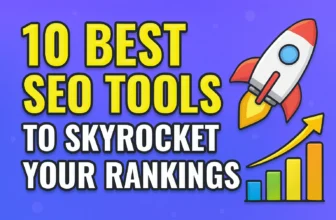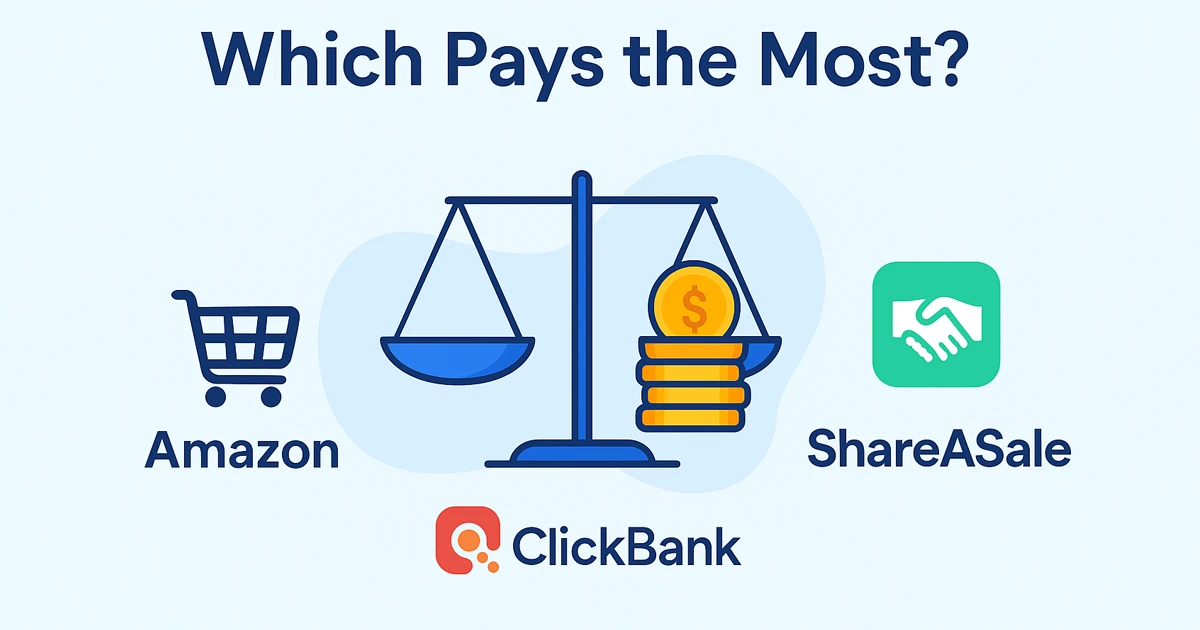
Starting an SEO (Search Engine Optimization) agency is an exciting venture for anyone passionate about digital marketing and helping businesses grow online.
With the increasing demand for online visibility, businesses of all sizes are seeking SEO expertise to improve their search engine rankings, drive traffic, and boost conversions.
However, launching a successful SEO agency and acquiring clients quickly requires strategic planning, a strong foundation, and effective marketing.
In this comprehensive guide, we’ll walk you through the steps to set up your own SEO agency and attract clients fast, covering everything from defining your niche to closing deals.
Step 1: Understand the SEO Industry and Define Your Niche
Why Start an SEO Agency?
The SEO industry is thriving, with businesses investing heavily in digital marketing to stay competitive. According to Statista, the global digital marketing market was valued at over $350 billion in 2023 and is projected to grow significantly.
SEO remains a critical component of digital marketing, as organic search drives 53% of all website traffic, per BrightEdge research. Starting an SEO agency allows you to tap into this demand, offering services that deliver measurable results.
Choosing Your Niche
To stand out in a crowded market, focus on a specific niche. Niching down helps you target a particular audience, build expertise, and differentiate your agency. Consider the following when choosing your niche:
- Industry Focus: Specialize in industries like e-commerce, healthcare, real estate, or SaaS. For example, an agency focusing on dental practices can tailor strategies to attract local patients.
- Service Specialization: Offer specific SEO services like local SEO, technical SEO, content marketing, or link building. For instance, specializing in e-commerce SEO can attract online retailers.
- Geographic Focus: Target businesses in a specific region, such as a city or state, to dominate local SEO markets.
Action Steps:
- Research industries with high demand for SEO services using tools like Google Trends or SEMrush.
- Identify your strengths and interests to align with a niche.
- Analyze competitors in your chosen niche to find gaps you can fill.
Step 2: Develop Your Skills and Expertise
Master SEO Fundamentals
To run a successful SEO agency, you need a deep understanding of SEO principles, including:
- Keyword Research: Learn to use tools like Ahrefs, SEMrush, or Google Keyword Planner to identify high-value keywords.
- On-Page SEO: Optimize title tags, meta descriptions, headers, and content for search engines.
- Technical SEO: Understand site speed, mobile optimization, crawlability, and schema markup.
- Link Building: Develop strategies for acquiring high-quality backlinks.
- Analytics: Master Google Analytics, Google Search Console, and other tools to track performance.
Stay Updated on SEO Trends
SEO is an ever-evolving field, with Google updating its algorithms frequently. Stay informed by following industry leaders like Moz, Search Engine Journal, and Neil Patel. Join SEO communities on platforms like X, Reddit, or LinkedIn to learn from peers.
Build a Portfolio
If you’re new to SEO, start by working on your own website or offering pro bono services to small businesses. Document your results to showcase your expertise. For example, create a case study showing how you increased a website’s organic traffic by 50% in three months.
Action Steps:
- Take online courses from platforms like Coursera, Udemy, or Moz Academy to deepen your SEO knowledge.
- Practice SEO on a personal blog or small client projects.
- Create a portfolio website showcasing your skills and results.
Step 3: Set Up Your SEO Agency
Create a Business Plan
A solid business plan outlines your agency’s goals, services, target market, and financial projections. Key components include:
- Mission Statement: Define your agency’s purpose, e.g., “Helping small businesses dominate local search results.”
- Services Offered: List services like keyword research, content creation, link building, or SEO audits.
- Pricing Model: Decide whether to charge hourly, per project, or on a retainer basis. For example, a typical SEO retainer ranges from $1,000 to $5,000 per month, depending on the scope.
- Target Market: Specify your ideal clients, such as local restaurants or e-commerce stores.
- Financial Projections: Estimate startup costs (e.g., tools, website, marketing) and revenue goals.
Legalize Your Business
Choose a business structure (e.g., sole proprietorship, LLC) and register your agency. Obtain necessary licenses, set up a business bank account, and consider business insurance to protect against liabilities.
Build Your Brand
Your agency’s brand should reflect professionalism and expertise. Key branding elements include:
- Business Name: Choose a memorable, SEO-friendly name, e.g., “RankRocket” or “GrowEasy SEO.”
- Logo and Website: Design a professional logo and create a website optimized for SEO to attract organic traffic.
- Business Email: Use a custom domain email (e.g., yourname@youragency.com) for credibility.
Action Steps:
- Write a detailed business plan using templates from SCORE or Bplans.
- Register your business with your state or country’s business authority.
- Hire a designer or use tools like Canva to create a logo and Figma for website mockups.
Step 4: Invest in the Right Tools
SEO agencies rely on tools to deliver results efficiently. Invest in the following:
- Keyword Research: Ahrefs ($99–$999/month), SEMrush ($129–$499/month), or Ubersuggest (free–$40/month).
- Analytics: Google Analytics (free), Google Search Console (free).
- Technical SEO: Screaming Frog ($259/year) for site audits or Sitebulb ($350/year).
- Content Creation: Grammarly ($12/month) for editing or SurferSEO ($59–$239/month) for content optimization.
- Project Management: Trello (free–$17.50/month) or Asana (free–$24.99/month) to manage client projects.
Action Steps:
- Start with free tools like Google Analytics and Ubersuggest to minimize costs.
- Subscribe to one premium tool (e.g., Ahrefs or SEMrush) based on your budget.
- Use free trials to test tools before committing.
Step 5: Develop a Client Acquisition Strategy
Build a Lead Magnet
Create valuable content to attract potential clients, such as:
- Free SEO Audit: Offer a free website audit to identify SEO issues and demonstrate your expertise.
- E-book or Guide: Write a guide like “10 SEO Mistakes Small Businesses Make” and gate it behind an email opt-in.
- Webinar: Host a webinar on “How to Rank #1 on Google” to showcase your knowledge.
Leverage Content Marketing
Content marketing is a powerful way to attract clients and establish authority. Start a blog on your website with articles like:
- “How to Optimize Your Website for Local SEO”
- “The Ultimate Guide to E-commerce SEO”
- “Why Your Business Needs Link Building in 2025”
Optimize your blog posts for SEO to rank for keywords like “SEO agency for small businesses” or “best SEO services.”
Network Locally and Online
- Local Networking: Attend Chamber of Commerce events, business meetups, or industry conferences to connect with potential clients.
- Online Communities: Join groups on LinkedIn, Reddit, or X to engage with business owners. Share insights without being overly promotional.
- Cold Outreach: Email or message businesses in your niche with personalized pitches. For example, “I noticed your website isn’t ranking for key terms like [keyword]. I can help you improve that.”
Use Paid Advertising
Run targeted ads on Google Ads or social media platforms like LinkedIn and Facebook to reach business owners. For example, target ads to “small business owners in [your city]” with a call-to-action for a free SEO audit.
Action Steps:
- Create a lead magnet and promote it on your website and social media.
- Publish one blog post per week optimized for SEO.
- Send 10–20 personalized cold emails daily to businesses in your niche.
Step 6: Pitch and Close Clients
Craft a Winning Pitch
Your pitch should highlight the value you provide and address the client’s pain points. A good pitch includes:
- Introduction: Briefly introduce yourself and your agency.
- Problem Identification: Highlight specific SEO issues on their website, e.g., “Your site is missing meta descriptions, which hurts your rankings.”
- Solution: Explain how your services will solve their problems, e.g., “We’ll optimize your on-page SEO to boost traffic by 30%.”
- Case Studies: Share results from past projects or hypothetical examples based on industry benchmarks.
- Call-to-Action: Invite them to a free consultation or audit.
Offer Flexible Packages
Create tiered pricing packages to appeal to different budgets. For example:
- Basic ($500/month): Keyword research, on-page optimization, monthly reports.
- Pro ($1,500/month): Basic + technical SEO, link building, content creation.
- Enterprise ($3,000+/month): Pro + advanced analytics, competitor analysis, and custom strategies.
Deliver Exceptional Consultations
During consultations, focus on the client’s goals (e.g., more leads, higher sales) rather than technical SEO jargon. Use tools like Zoom or Google Meet for virtual meetings and follow up with a detailed proposal.
Action Steps:
- Create a pitch template and customize it for each prospect.
- Develop three pricing packages based on market research.
- Schedule at least five consultations per week to practice your pitch.
Step 7: Deliver Results and Retain Clients
Set Clear Expectations
Be transparent about timelines and deliverables. For example, explain that SEO results typically take 3–6 months to materialize but provide short-term wins like improved site speed or keyword rankings.
Provide Regular Reports
Send monthly reports showing key metrics like organic traffic, keyword rankings, and conversions. Use tools like Google Data Studio to create visually appealing reports.
Over-Deliver on Service
Go beyond the contract by offering small bonuses, like a free competitor analysis or extra content optimization. This builds trust and encourages renewals.
Ask for Referrals
Happy clients are your best marketers. Ask for referrals or testimonials once you’ve delivered results. For example, “If you’re happy with our work, we’d love for you to refer us to other business owners.”
Action Steps:
- Create a client onboarding process with clear timelines and deliverables.
- Set up automated reports using Google Data Studio or AgencyAnalytics.
- Request testimonials after three months of successful work.
Step 8: Scale Your Agency
Hire a Team
As your client base grows, hire specialists to handle tasks like content writing, link building, or technical SEO. Start with freelancers from platforms like Upwork or Fiverr, then transition to full-time staff.
Automate Processes
Use tools like Zapier to automate repetitive tasks, such as sending client emails or updating project statuses. This frees up time to focus on high-value activities like strategy and client acquisition.
Expand Services
Offer complementary services like PPC advertising, social media marketing, or web design to increase revenue and provide more value to clients.
Action Steps:
- Hire one freelancer to test delegation.
- Set up one automation workflow using Zapier.
- Research one additional service to add to your offerings.
Common Mistakes to Avoid
- Overpromising Results: Don’t guarantee #1 rankings, as SEO is unpredictable. Focus on measurable improvements.
- Neglecting Your Own SEO: Optimize your agency’s website to attract organic leads.
- Taking on Too Many Clients: Start with 3–5 clients to ensure quality service.
- Ignoring Client Communication: Respond promptly and keep clients informed.
Conclusion
Starting an SEO agency and getting clients fast is achievable with the right strategy. By defining your niche, mastering SEO skills, setting up a professional business, and implementing a robust client acquisition plan, you can build a thriving agency.
Focus on delivering measurable results, building strong client relationships, and continuously improving your expertise. With persistence and dedication, your SEO agency can become a go-to solution for businesses seeking online success.
Next Steps:
- Start by choosing your niche and building a portfolio.
- Launch your website and publish your first blog post.
- Reach out to five potential clients this week with a personalized pitch.
By following these steps, you’ll be well on your way to running a successful SEO agency and attracting clients quickly.






